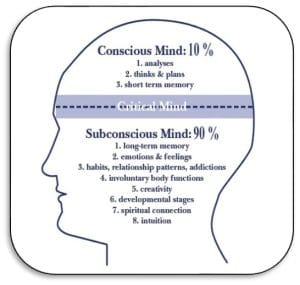Seven Secrets to Successful Change
Quit smoking, lose weight, gain confidence.
Be the You that You want to be.
The media keeps telling us to just follow this 7 day/week program or eat this, and not that and you will achieve that elusive goal, easy peasy!
You’re motivated and say to yourself ‘right, this time it’s going to work. I am going to change. I will lose weight, quit smoking, cut back on my drinking, increase my exercise, or simply stress less’.
The truth is that sustainable change involves changing your internal and external environments, not simply a change to one area of your life, like adding an exercise routine or changing your diet.
Understanding what change is, and what it is not, holds the key to success as this understanding puts you in control.
Say, you choose to quit smoking, for example, recent Research reports the number of attempts a smoker actually makes before becoming a non-smoker is thirty or more attempts, much higher than previously thought. Thirty attempts is pretty overwhelming!
Why is major change so hard?
Let’s look at the seven areas secrets to change – especially long term change
1. Your External Environment
Your home, work and social environments – do they support your goals for change e.g. when you give up smoking, can you avoid other smokers and your smoking triggers?
The people around you – will they help or hinder your goal achievement e.g. will your partner, family and friends be supportive, hinder or tempt you when you decide to cut back on drinking alcohol.
Take time to identify what and who is around you and assess if they will support, be neutral or act to hinder or block your goals for change? Take time to list the supports and traps you expect and develop a plan to deal with them as they arise.
Plan for success like you would any other project. Don’t leave your success to chance.
Remember, “If you fail to plan, you are planning to fail!”. Simple, but true.
2. Your Identity
‘Changing your behaviour doesn’t change your identity but, changing your identity does change your behaviour.’
The above statement doesn’t mean you have to go into a witness protection program and move countries. Achieving change involves assessing the way you think and feel about yourself. The way you talk to yourself and the way you take on board what others say to you all have an impact on your ability to make the changes you want.
Negative self-talk and the way we label ourselves or, wear labels others have given us is endless: I am a smoker, a snorer, fat and disgusting, a heavy drinker, I totally lack confidence, or I’d rather die than stand up and speak in public. These chip away at our confidence and over time you end up owning that label.
When you continue your negative self-talk day in, day out you actually get into the lifeboat with your problem and, your problem is steering the lifeboat, in control!
The change process challenges these labels and beliefs and, sometimes the source is hidden:
One client couldn’t stand their voice, they described their voice as whiny. They had an abusive partner and, being incredibly strong they did not take on their partner’s abuse at a conscious level. However, in hypnosis, we discovered that some of their partner’s abuse has stuck at the subconscious level. Once we removed the partner’s labels and words, the client understood that they had a perfectly normal voice.
Create ownership of the new, changing you by believing in, and assuming your new identity – I am a non-smoker, I am at my ideal weight, I am confident. There is an element of ‘fake it till you make it’. However, think about what’s going to work for you? Telling yourself your fat and constantly beating yourself up when you slip up and have a chocolate or, choosing to say yourself ‘I’ve got this. I am at my ideal weight. I will slip up now and then, and I’m ok with that’.
You can own your change of identity with a powerful ‘I am …’ statement e.g. I am confident in everything I do.
Your I am statement then becomes the mantra that you repeat throughout your day as a support. You are your own cheer squad.
3. Responsibility and Commitment
There’s an old therapists’ joke – how many therapists does it take to change a lightbulb? Only one – but the lightbulb must want to change.
Are you ready to take responsibility and give 100% commitment to achieve the change you want?
Commitment is everything. Richard Bandler, the founder of Neuro-Linguistic Programming (NLP), says in his book Trance-Formation
‘to achieve enduring change people must –
- become so sick of having the problem they decide they really want change,
- somehow see their problem from a new perspective or in a new light,
- find, create and pursue new and appealing options’.
If your motivation for change is your partner, the kids or perhaps your doctor has told you to lose weight that’s great. However, unless you personally commit, your chances of success are not great.
“The quality of a patient’s participation in therapy is a key determinant of the outcome.”
The surprising secret to successful psychotherapy The Conversation October 19, 2018
4. Mind-Body Connection
The mind and the body need to be in sync to ensure successful change.
Whatever the change you want is, it’s helpful to understand how your mind and body process and work together to either pave the way for your success or set you up for failure, potentially again and again.
When you are stressed or anxious the sympathetic nervous system i.e. the fight, flight, freeze or stress response is activated releasing cortisol and adrenaline into your body. These are the stress hormones. When you are calm and in control, the relaxed parasympathetic nervous system is activated releasing dopamine or the feel-good hormone.
When you are stressed and full of adrenaline, your decision-making is impaired and it’s easy to fall into the trap of thinking ‘why bother or, this is too hard or, I need chocolate to calm me down’. When you are in that stressed state, even with all the goodwill in the world it is difficult to stop yourself from reaching for that cigarette or that chocolate. Why?
It’s hard to think clearly when you’re under stress. Your blood pressure and heart rate rise, adrenaline and cortisol flood your body, and your survival instincts kick in — all of which interfere with decision making.
Harvard Business Review (March 2018)
Being aware that stress causes either-or, reactive decision making will help you to put in place a coping strategy that helps you stop and look at the bigger picture and all your options, like taking a break instead of just being in the moment and reacting to stress by reaching for a chocolate.
Achieving successful change is only really possible when you are in control, not your stress or anxiety.
5. The Dopamine Seeking-Reward Loop
In Dopamine Nation, Dr Anna Lembke asks ‘Could discomfort be the secret to a healthier, more content life?’[1]
‘Our relentless pursuit of pleasure has made us all vulnerable to compulsive overconsumption, and it is ultimately causing us pain … when we get a “hit” (from cigarettes, food, alcohol) that requires no effort, our dopamine spikes and then crashes provoking us to seek another quick hit to lift us back up’
Psychologically, we seek pleasure and avoid pain or discomfort. This is another area where our body’s response impacts our ability to change. Breaking the Dopamine Loop requires a Plan and a conscious response e.g. instead of automatically reaching for a cigarette to get your dopamine hit, you need to plan for a different response or pattern such as stop, take a breath, slow down and make a choice, based on your goal not to have that cigarette.
The media relentlessly tells us we want the familiar, the comfortable. Moving to the unfamiliar through change is uncomfortable and against current social norms.
Change does cause discomfort. Are you ready for that? What’s your plan to handle discomfort?
[1] Could discomfort be the secret to a healthier, more content life?’ By Sarah Berry SMH November 20, 2021
6. Conscious and Subconscious Mind
The conscious mind and the subconscious mind need to be in sync. Your conscious mind may say ‘this time I’m really going to lose weight’ yet, at the same time your subconscious mind believes you need chocolate to ease your stress and anxiety. There’s the conflict.
You may blame your lack of willpower for not achieving the change you want. In reality, it’s not you, you’ve just found your secret saboteur. Your subconscious trumps your conscious mind every time.
Successful change strategies engage the subconscious mind. As you can see from the diagram, the subconscious controls emotions, feelings, habits, patterns and addictions. The Subconscious controls almost everything to do with change. If your subconscious hasn’t been reprogrammed and is working with old habits, stories and beliefs it’s not on board with your new story and the change you want, you are setting yourself up for potential failure.
The subconscious also controls relationships.
Most people do not understand that they have a relationship with cigarettes, food or alcohol with the habit often described as a friend or, my go-to in times of stress or need. As strange as it sounds, you must break up your relationship with this ‘friend’.
In order to achieve change, you need to change the relationship you have with your coping mechanism.
Hypnotherapy and long-term, deep meditation access the subconscious mind. Talking therapies access the conscious mind only.
7. Patterns of Behaviour
We base most of our daily activities on patterns or routines which are generally operating on automatic e.g. we all have morning and pre-bed routines.
‘There are two types of thinking driving human behaviour: 90 per cent of our brain functions on automatic thinking or habit, while only 10 per cent uses reflective thinking to drive our choices; this kind of thinking requires much more effort and is not a dominant driver of human behaviour.’
Reflecting or taking time out to check in with ourselves is critical in achieving long-term change. Reflecting helps you to understand:
- your behaviour;
- what drives or triggers your behaviour; and
- what your beliefs are that continues a particular behaviour.
You will know some beliefs that you have such as you like chocolate and dislike vegetables. Then there are the beliefs that you have no clue about and, these are often the ones that block your efforts to change.
Reflecting, observing your behaviours and thought patterns and managing your responses to stress will, over time help you work out these hidden beliefs.
There is an easier way, Hypnotherapy. In hypnosis, your subconscious mind quickly reveals your unknown or hidden beliefs that cause unwanted behaviours.
My client had tried everything to lose weight, unsuccessfully. In Hypnosis, they revealed they overate because they didn’t want their partner, who was obese to feel embarrassed by their small meal versus their partner’s gigantic meal. Game changer!
A smoker may be triggered to reach for a cigarette when the phone rings or they are having a cup of coffee. Someone who overeats may be triggered by boredom or feelings of depression. Stress may lead a person to a glass of wine or more. These behaviours are automatic coping mechanisms and are often difficult to control and change by yourself until you understand the triggers, motivations and automatic reactions.
Achieving Change
Understanding that there is so much at play to achieving long-term change – the body, the mind, habits, patterns, hidden saboteurs – is pretty overwhelming, yet key to successful change.
We are taught that to change we look at what we want to change and just say ‘no’ to the old. As you can see it’s not that simple.
Being aware, understanding and managing these seven secrets to successful change by yourself is a big ask of anyone. It can be done, but it takes time.
Working with a Hypnotherapist will save you time and effort and improve your chances of success. Wouldn’t it be great to know what your big picture is, what triggers you and sabotages your efforts, what supports you or blocks you? Once you understand your unwanted behaviours and plan for change life is so much easier.
Caveat: for some people, the isolation caused by Covid has challenged their well-intentioned commitment to change. I’ve had several clients that successfully achieved their change, only to go backwards. We found the cause: their resolve crashed because they were isolated and so lonely they reached for their old friend – the cigarette, food or wine – to fill their void. This is totally understandable. They knew they were isolated and lonely but didn’t connect the two – loneliness and going back to their familiar, comforting old coping mechanism.
The good news is that my clients, after a top-up Hypnotherapy session, were able to identify the cause of their slipping back into old habits and they were able to develop coping strategies to manage their loneliness and recommit to their desired change.
It’s exhausting just thinking of all the areas in your life that are involved in change let alone trying to manage them on your own.
Hypnotherapy has an extraordinary success rate when you are committed to change.
When you take control, plan and do the work, change is yours.
Author
Helen McLucas is an Accredited HCA and GoAH Clinical Hypnotherapist practicing at New You Hypnotherapy in Sydney, Australia. Find out more about Helen on her website – nyhsydney.com.au.
© Helen McLucas, New You Hypnotherapy Sydney Australia. 2022. All Rights Reserved. Seven Secrets to Successful Change.
How to find an accredited clinical hypnotherapist in Australia
The Guild of Australian Hypnotherapists (GoAH) is a highly reputable Association and importantly, a member of the Hypnotherapist Council of Australia (HCA), the national peak body for Hypnotherapy Associations in Australia. To be a member of HCA an Association must adhere to the highest quality therapeutic standards.
Choose a Hypnotherapist who is a member of an Association that belongs to HCA.
If you want to know how hypnotherapy can benefit you email us at admin@guildofaustralianhypnotherapists.com.au and we’ll be happy to put you in touch with an accredited clinical hypnotherapist in your area,




